SQL Aliases
SQL aliases are used to give a table, or a column in a table, a temporary name.
Aliases are often used to make column names more readable.
An alias only exists for the duration of that query.
An alias is created with the AS keyword.
Aliases can be useful when:
- There are more than one table involved in a query
- Functions are used in the query
- Column names are big or not very readable
- Two or more columns are combined together
Example
SELECT Employee_id AS id
FROM employee;

AS is Optional
In most database languages, you can skip the AS keyword and get the same result:
Example
SELECT Employee_id id
FROM employee;

Syntax:
When alias is used on column:
SELECT column_name AS alias_name
FROM table_name;
When alias is used on table:
SELECT column_name(s)
FROM table_name AS alias_name;
Demo Employee table
This employee table is used for examples:
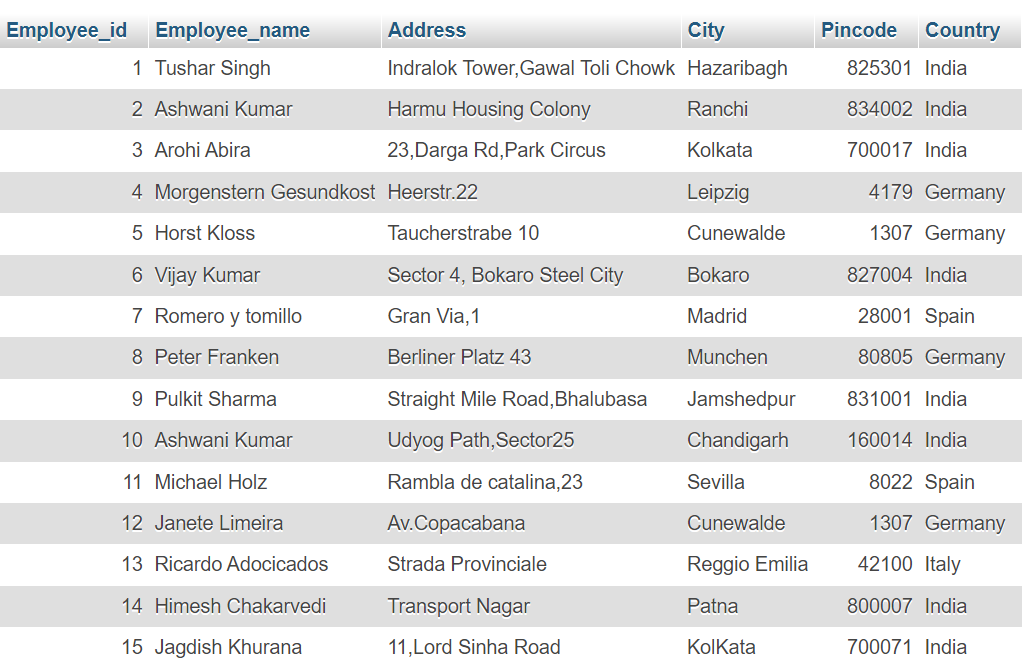
Demo Products table
This product table is used in examples:
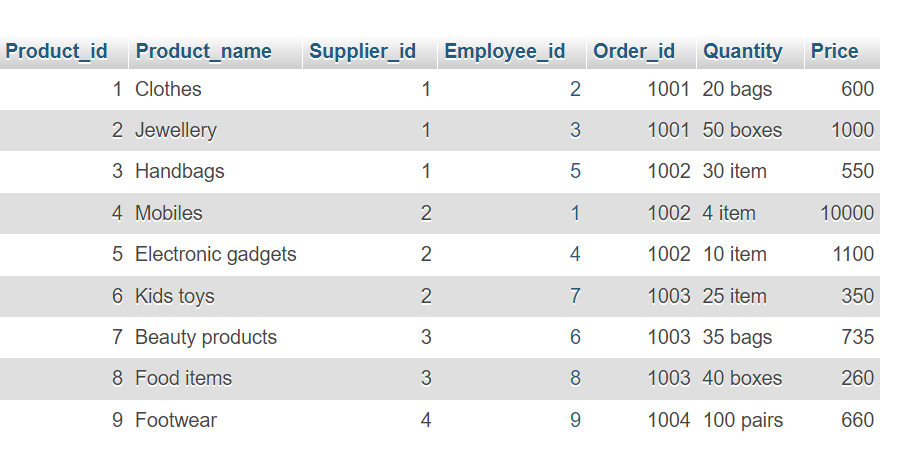
Alias for Columns
The following SQL statement creates two aliases, one for the Employee_id column and one for the Employee_name column:
Example
SELECT Employee_id AS id , Employee_name AS Employee
FROM employee;
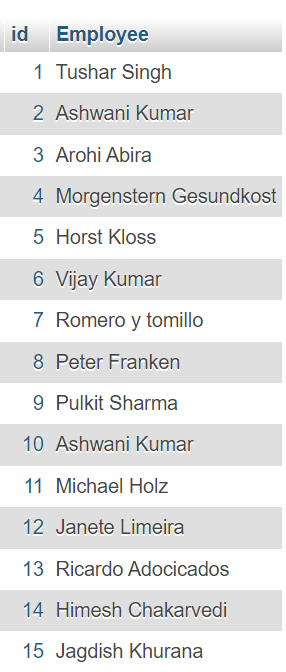
Using Aliases With a Space Character
If you want your alias to contain one or more spaces, like "My Good Products" , surround your alias with square brackets or double quotes.
Example:
Using [square brackets] for aliases with space characters:
SELECT Product_name AS [My Good Products]
FROM products;
Example
Using "double quotes" for aliases with space characters:
SELECT Product_name AS "My Good Products"
FROM products;

Note:Some database systems allows both [] and "", and some only allows one of them.
Concatenate Columns
The following SQL statement creates an alias named "Address" that combine four columns (Address, PostalCode, City and Country):
Example
This statement is work in MYSQL.
SELECT Employee_name ,CONCAT(Address, ',' , Pincode ,
',' , City, ',' , Country) AS Address
FROM employee;
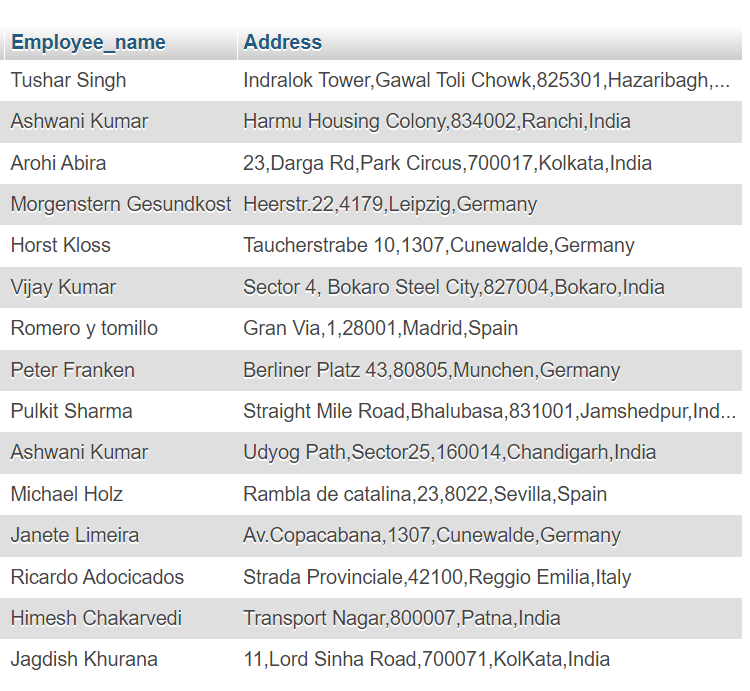
Alias for Tables
Example
Refer to the Customers table as Persons instead:
SELECT *
FROM employee AS Persons;
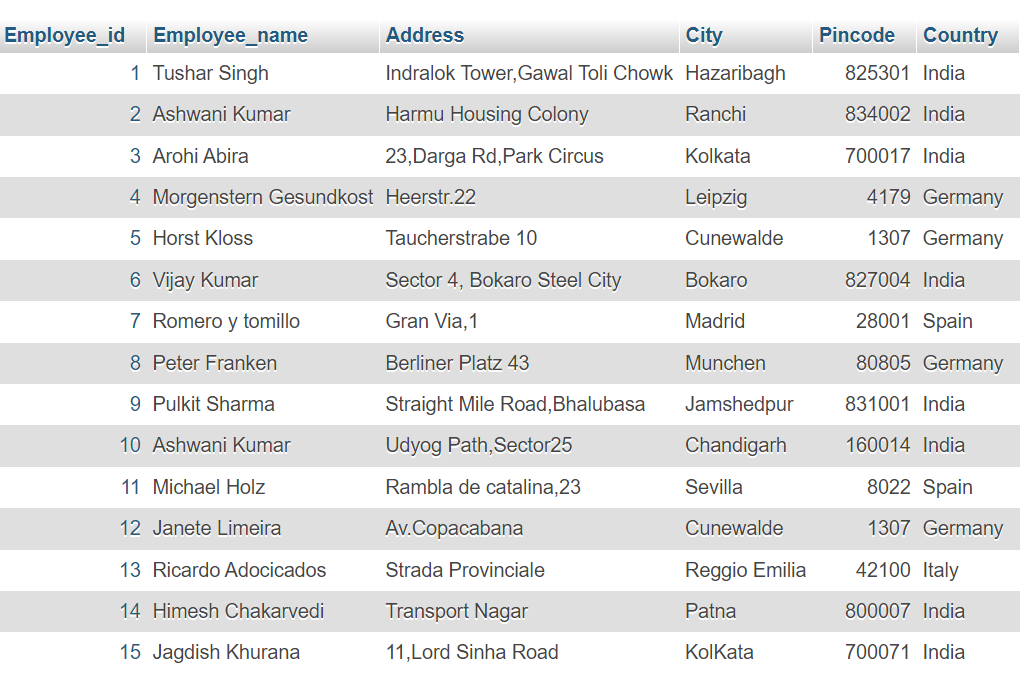
It can make the SQL statements shorter when you are using more than one table in your queries.
The following SQL statement selects all the orders from the employee with Employee_id=5 (Horst Kloss).
We use the "employee" and "products" tables, and give them the table aliases of "e" and "p" respectively :
Example
SELECT p. Order_id , p. Order_date , e. Employee_name
FROM employee AS e, products AS p
WHERE
e. Employee_name = 'Horst Kloss' AND e. Employee_id = p. Employee_id;

The following SQL statement is the same as above, but without aliases:
